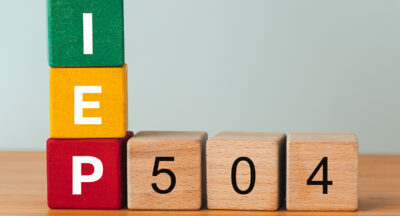
Executive Functioning When You Have ADHD
People can be flippant about ADHD. How many times have you heard someone who got momentarily distracted casually say, “Oh, it’s my ADHD,” when they don’t actually have that diagnosis?
They likely mean no harm, but it shows a lack of understanding of the scope of Attention Deficit Hyperactivity Disorder.
If only it caused distractibility.
ADHD is very serious and is characterized by inattention, hyperactivity, and impulsivity. In addition, as the authors point out in Driven to Distraction: Recognizing and Coping with Attention Deficit Disorder From Childhood Through Adulthood1, people struggle with secondary symptoms, such as, “…impaired self-image, low self-esteem, depression, fearfulness of others, mistrust of self, skittishness in relationships, and anger over the past.”
So, yes, serious stuff. What is a root cause of these symptoms? ADHD hampers executive functioning or an individual’s capacity for attention control, working memory, inhibition, and problem-solving. In essence, executive functioning skills help you get things done.
When ADHD is untreated or treated improperly, these skills are deficient, making life very difficult. People’s self-worth decreases, their relationships suffer, they have trouble in school, they lose jobs, and they constantly feel overwhelmed.
Let’s take a closer look at these areas of executive functioning and what happens to them when you have ADHD:
Attention Control
This one seems obvious, and on its face having problems focusing may sound normal. After all, kids and adults can have short attention spans, especially with life’s everyday distractions and our attachment to the rapid information and instant feedback provided by our screens.
But trouble with starting or finishing tasks can wreak havoc on your mental health. In the U.S., more than 6 million children have been diagnosed with ADHD. Adult ADHD diagnoses are growing four times faster than those of children.
When a student has trouble beginning or completing assignments, they fall behind, which can cause a ripple effect of poor grades and low self-esteem. When an employee spends hours on a proposal but can’t apply the finishing touches, that individual will hear it from the boss and be judged by their performance.
Working Memory
The equation for successfully completing a task looks like this: Receiving Information + (Processing, Retention, Application) = Task Completion.
What happens if all you could do is receive the information but not remember it? You obviously couldn’t complete the task. This is what people with ADHD experience because of poorly functioning working memory, the short-term memory that helps you complete tasks.
The brain’s prefrontal cortex is responsible for working memory and serves as a storage space containing facts, thoughts, and ideas. If you have ADHD, it’s very difficult to access these.
Kids with ADHD who are remote learning are likely feeling frustrated because their limited working memory is making it maddening to toggle from one browser window to the other, focus on Zoom instruction while cross-referencing documents, and be prepared to be called on.
Without a “working” working memory, you can’t stay organized, which makes succeeding at tasks the steepest of uphill battles.
Inhibition
Some criticize inhibition as the paralysis of action because it causes us to overthink and do nothing. Individuals with ADHD might welcome inhibition with open arms. Whereas inhibition allows “neurotypical” people to slow down and consider their choices, the ADHD brain can be at full-throttle, causing impulsive behavior. According to the National Alliance on Mental Illness (NAMI), this manifests as impatient behavior, acting without regard for consequences, or interrupting others.
Too often, impulsive students get sent to the principal’s office, and working adults with no filters jeopardize client relationships by snapping at them.
Problem Solving
It’s no surprise that difficulty with sustaining attention, remembering information, and acting without thinking creates challenges with problem-solving. It’s reported that adults make an average of 35,000 decisions per day and kids, 3,000. The under or untreated ADHD brain doesn’t keep up with these numbers, nor are all the decisions it makes sound ones.
For the child in math class, solving word problems can be dizzying. An adult in a relationship may struggle mightily to resolve issues with a partner. To make matters worse, this can trigger the other symptoms of ADHD and have a full snowball effect.
Finding the Right Help to Treat ADHD and Improve Executive Functioning
The proper treatment can make all the difference in managing ADHD symptoms and improving executive functioning. At Cognitive Solutions LC, we treat patients with an empathetic approach, using neurofeedback therapy and/or executive functioning and psychotherapy. For more information, please contact us at (224) 723-5050 or email info@helpforld.com.
1Hallowell, Edward M., Ratey, John J. “Driven to Distraction.”, Sequence Ravelled Out of Sound. New York, NY: Anchor Books, 1994, 2011. 131.
Related Posts
Neurofeedback for ADHD
Neurofeedback: A Form of Biofeedback Neurofeedback is known by several names,...
How Can I Improve My Sleep?
Sleep is not just a period of rest; it is a fundamental aspect of our overall...
IEP Testing With a Private Evaluator — Why Your Child May Benefit More From a Private Evaluation
As parents, we all want the best for our children. When it comes to their...
Depression Part II: Therapeutic Treatment Options
Some say the depression is an affliction that is exasperated, if not caused by...





